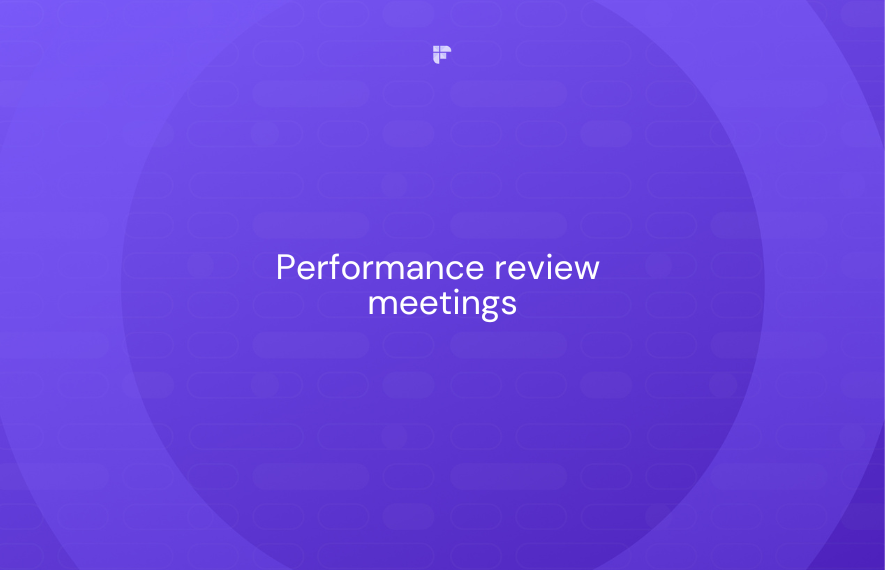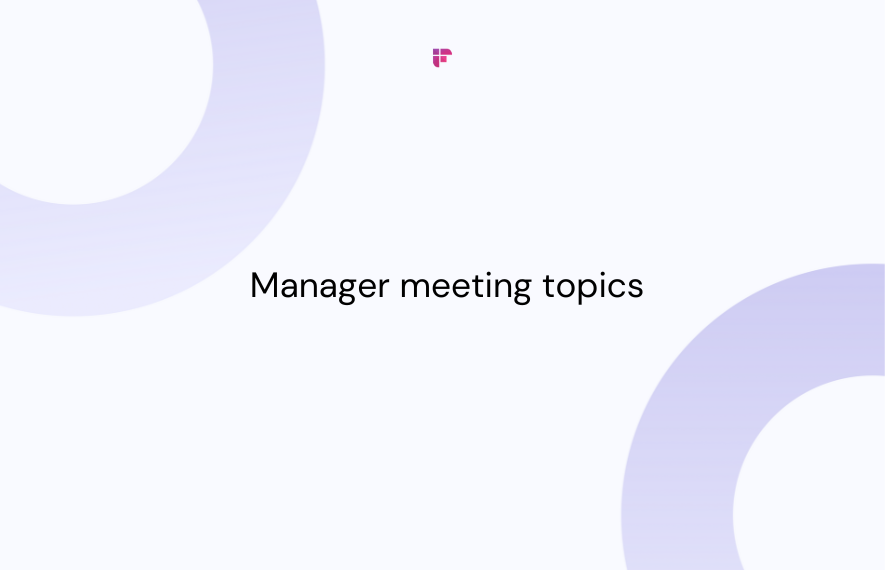Performance review meetings play a crucial role in organizations.
They provide an opportunity for managers and employees to reflect on past achievements, discuss areas for improvement, and set goals for the future.
However, effectively conducting a good meeting requires careful planning and execution.
In this guide, we will explore 7 essential tips to ensure your performance review meetings are productive, meaningful, and result-oriented.
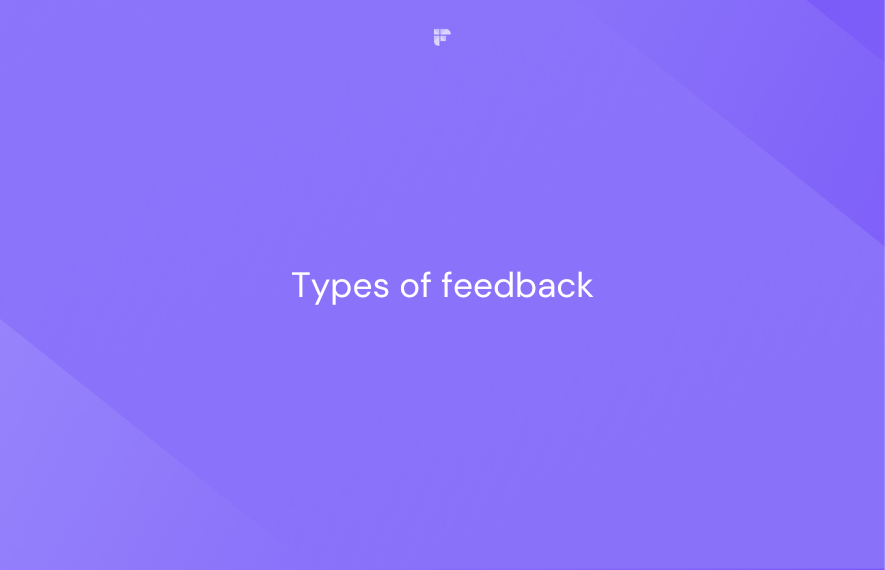
Importance of performance review meetings
Performance reviews serve several important purposes within organizations.

Here are some reasons why performance reviews are essential:
- Feedback and Recognition: Reviews provide a structured platform for managers to offer feedback, recognition, and constructive guidance to employees, fostering motivation and professional growth.
- Performance Improvement: By assessing strengths and weaknesses, reviews help identify areas for development, enabling employees to enhance their skills and performance for overall improvement, plus set goals.
- Goal Setting and Alignment: Performance reviews facilitate setting clear and measurable goals that align with organizational objectives, promoting focus, motivation, and engagement.
- Career Development: Reviews create opportunities to discuss career aspirations and growth possibilities and guide individuals to advance their careers within the organization.
- Performance Calibration: Reviews allow for fair comparisons and calibration of employee performance, ensuring consistency in evaluations and aiding in decision-making for promotions, salary adjustments, and succession planning.
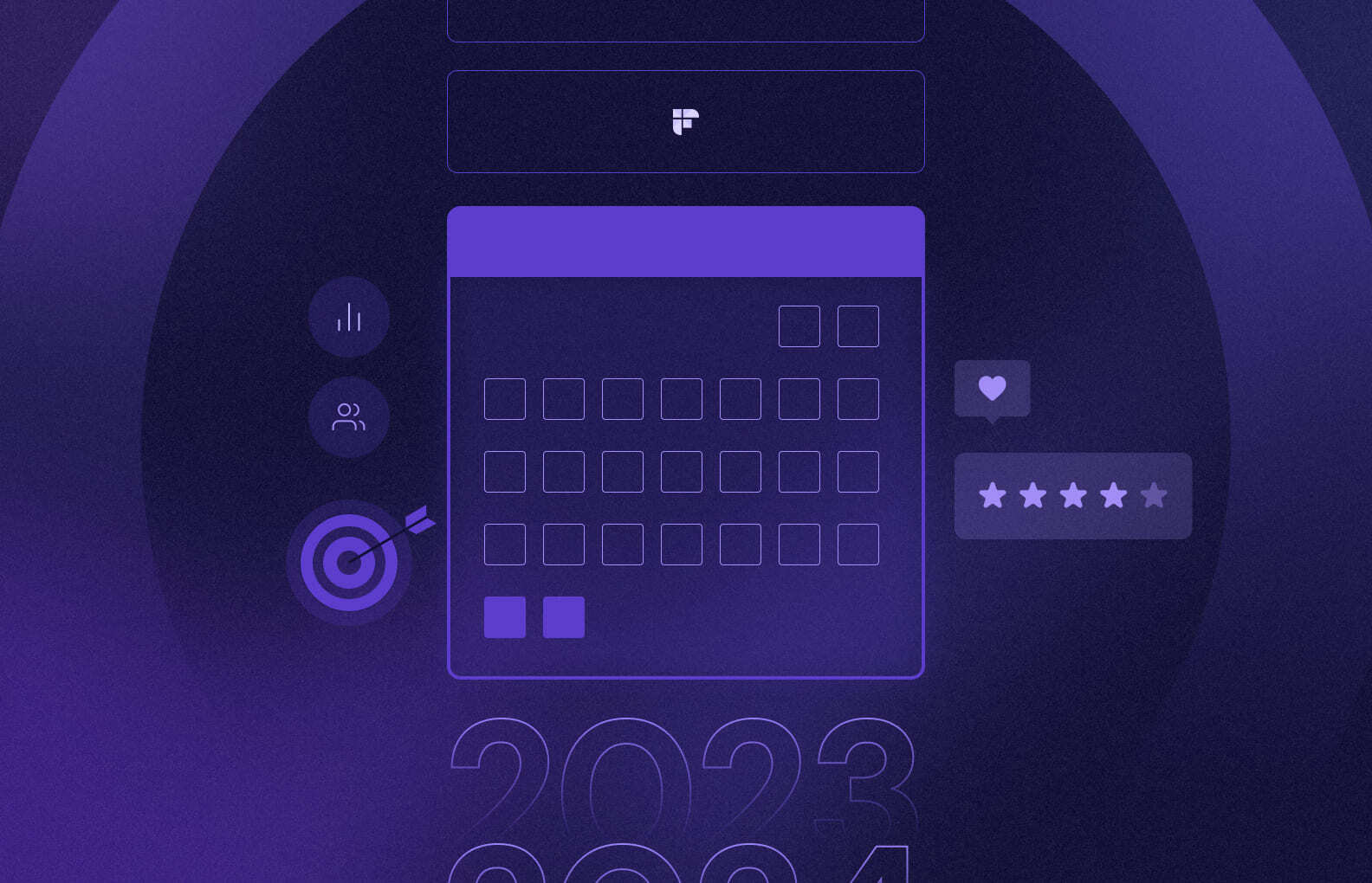
Examples of why performance review meetings are important:
- An employee who consistently meets or exceeds expectations during their performance review may be considered for a promotion or raise.
- An employee who is struggling in certain areas may receive feedback and guidance during their performance review to help them improve.
- An employee who has been with the company for several years but has not received a performance review may feel undervalued and unappreciated, leading to decreased motivation and job satisfaction.
- An employee who receives positive feedback during their performance review may feel more confident and motivated in their role, leading to increased productivity and job satisfaction.
- An employee who receives constructive criticism during their performance review may feel challenged to improve and grow in their role, leading to increased job satisfaction and career development.

Good questions to ask in a performance review meeting
For managers:
- What are your key accomplishments and successes during the review period?
- What challenges did you face, and how did you overcome them?
- How have you contributed to the team's goals and overall success?
- Are there any specific areas where you want to develop your skills or knowledge further?
- As your manager, how can I better support you in your role?
- Are there any additional resources or training that would benefit your professional growth?
- What goals or objectives would you like to set for the next review period?
- Is there anything else you would like to discuss or any feedback you would like to provide?
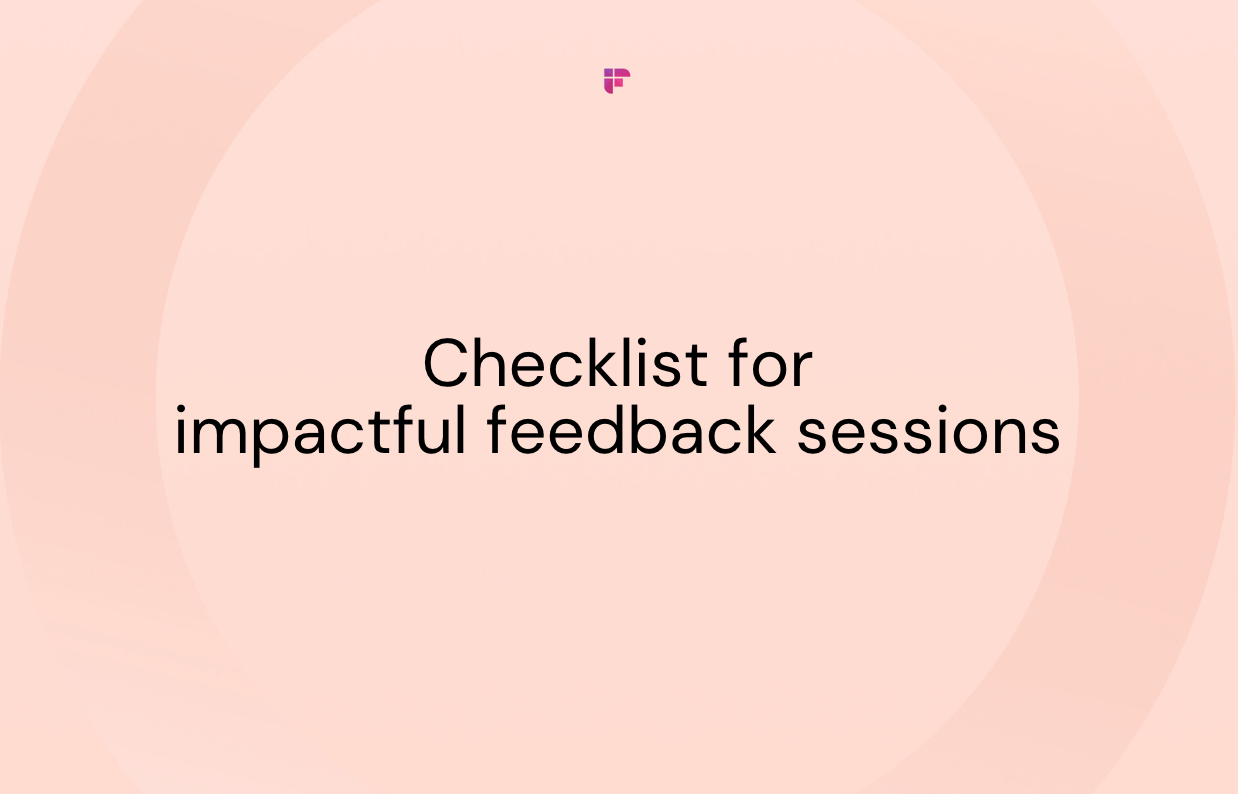
For employees:
- How am I performing in relation to the expectations and goals set for my role?
- What are my strengths and areas for improvement that you have observed?
- How can I further contribute to the team's success and the organization's goals?
- Are there any additional responsibilities or projects that I could take on?
- What opportunities are there for professional development and growth within the organization?
- How can I better align my performance and goals with the overall objectives of the team and organization?
- Can you provide specific feedback on any recent projects or assignments?
- Is there any additional support or resources that I can utilize to enhance my performance?
These questions create a constructive dialogue between the manager and employee, facilitating open communication, goal alignment, and opportunities for growth and development.
7 tips and strategies to conduct effective performance review meetings

1. Set clear objectives:
Before the meeting, both the manager and employee should establish clear objectives. Outline the purpose of the performance review, whether it is to acknowledge accomplishments, identify development areas, or set performance goals. This clarity sets the tone for the meeting and ensures that both parties are aligned on expectations.
2. Prepare ahead of time:
Preparation is the key to maximizing the effectiveness of the performance review meeting. Managers should review the employee's performance throughout the review period, gather relevant data and feedback, and compile specific examples of achievements and areas for improvement.
Similarly, employees should reflect on their own performance, identify challenges, and gather supporting evidence or accomplishments to share during the meeting. This preparation enables a focused and constructive discussion.
3. Foster two-way communication:
Performance review meetings should be a dialogue rather than a one-sided conversation. Encourage employees to actively participate by asking open-ended questions and seeking their perspectives on their performance.
This approach fosters a collaborative environment and empowers employees to share their thoughts, ideas, and concerns. By listening attentively, managers can gain valuable insights into the employee's perspective and tailor their feedback accordingly.

4. Provide constructive feedback:
Feedback is a fundamental aspect of performance reviews. Managers should provide both positive reinforcement and constructive criticism in a balanced manner.
Focus on specific examples and behaviors, avoiding generalizations. Use the "sandwich" technique by starting with positive feedback, addressing areas for improvement, and ending on a positive note.
This approach helps maintain a supportive atmosphere and motivates employees to grow and develop.
5. Set SMART goals:
Setting goals is a crucial component of performance reviews, as they provide a roadmap for future improvement. Encourage employees to set (SMART) goals that align with the company's objectives:
- Specific
- Measurable
- Achievable
- Relevant
- Time-bound
Collaboratively define action steps and a timeline for achieving these goals. Regularly track progress and provide support along the way to ensure success.
6. Utilize technology: Fireflies AI
Integrating technology into performance review meetings can significantly enhance productivity and documentation.
Fireflies AI is a valuable tool that automates note-taking during meetings, capturing and summarizing important discussion points, feedback, and action items. By using Fireflies AI, managers, and employees can focus more on the conversation and coaching, knowing that accurate meeting transcripts and summaries will be readily available after the call.
This streamlines the review process, improves documentation, and allows for better follow-up and accountability.
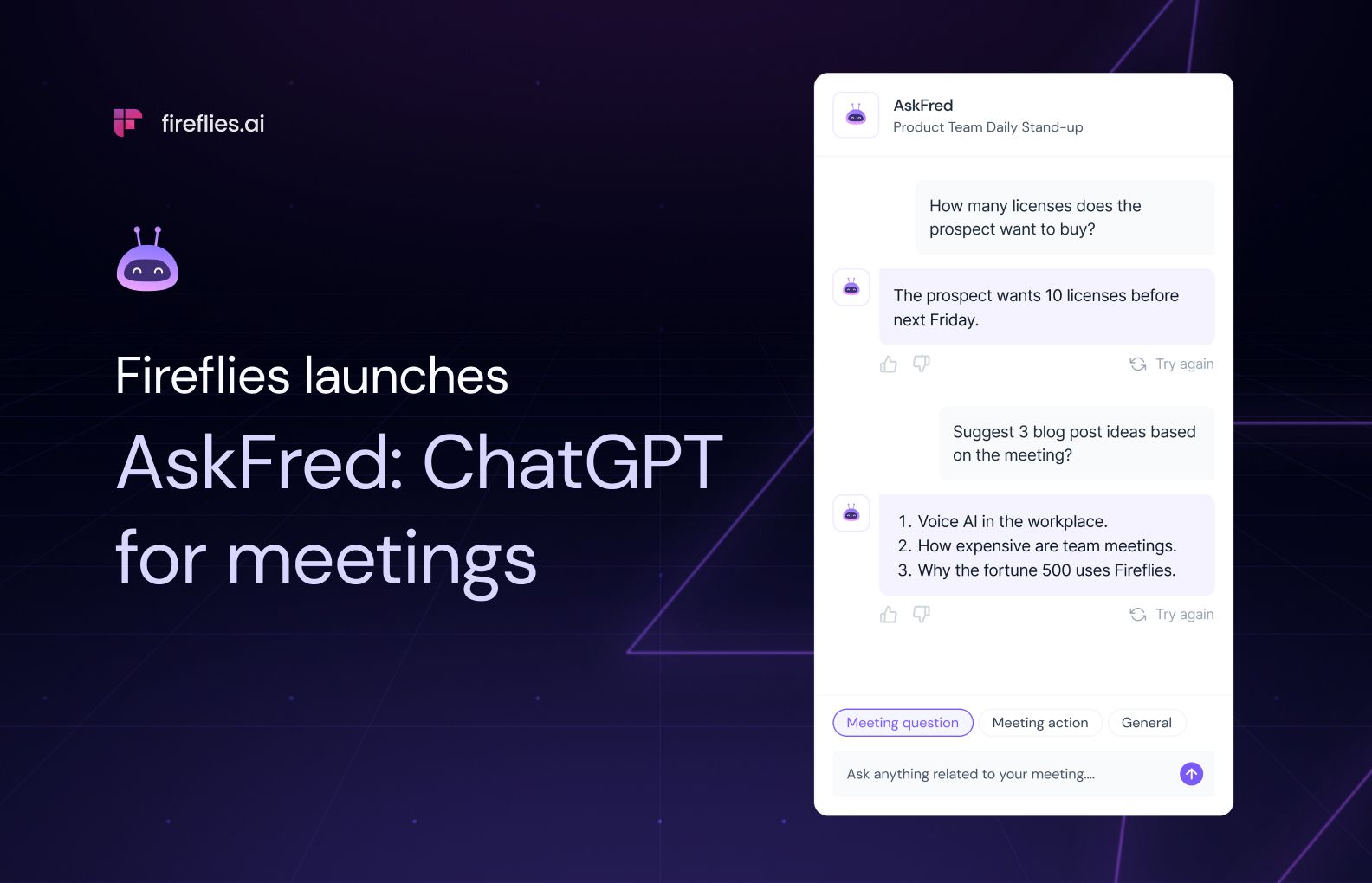
7. Follow-up and continuous feedback:
Performance reviews should not be isolated events but part of an ongoing feedback process. After the meeting, ensure timely follow-up by providing a written summary of the discussion, including agreed-upon goals and action items.
Schedule regular check-ins to track progress, offer support, and provide additional feedback. Employees can stay motivated and aligned with their goals throughout the performance cycle by maintaining continuous communication.
Wrapping up
Improving the quality of performance review meetings is crucial for fostering growth, development, and alignment within an organization. Fortunately, you can take steps to enhance these meetings even further.
One way to do this is by utilizing AI technology such as Fireflies, which automatically integrates into your performance review meetings. By incorporating Fireflies into your meetings, you can save time that would otherwise be spent on trying to capture important details manually.
This frees up more time for meaningful conversations and coaching, allowing you to provide better support to your employees.

